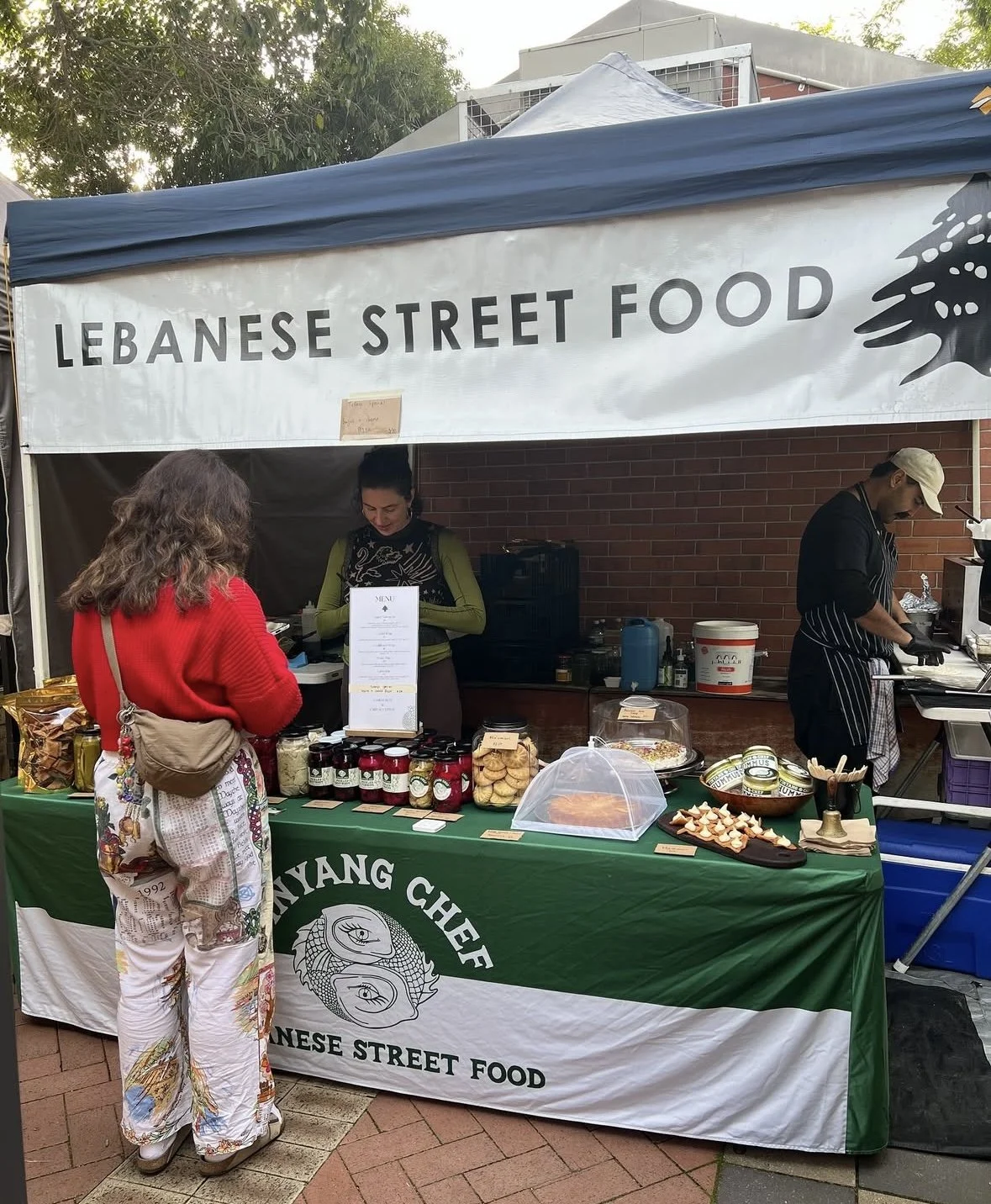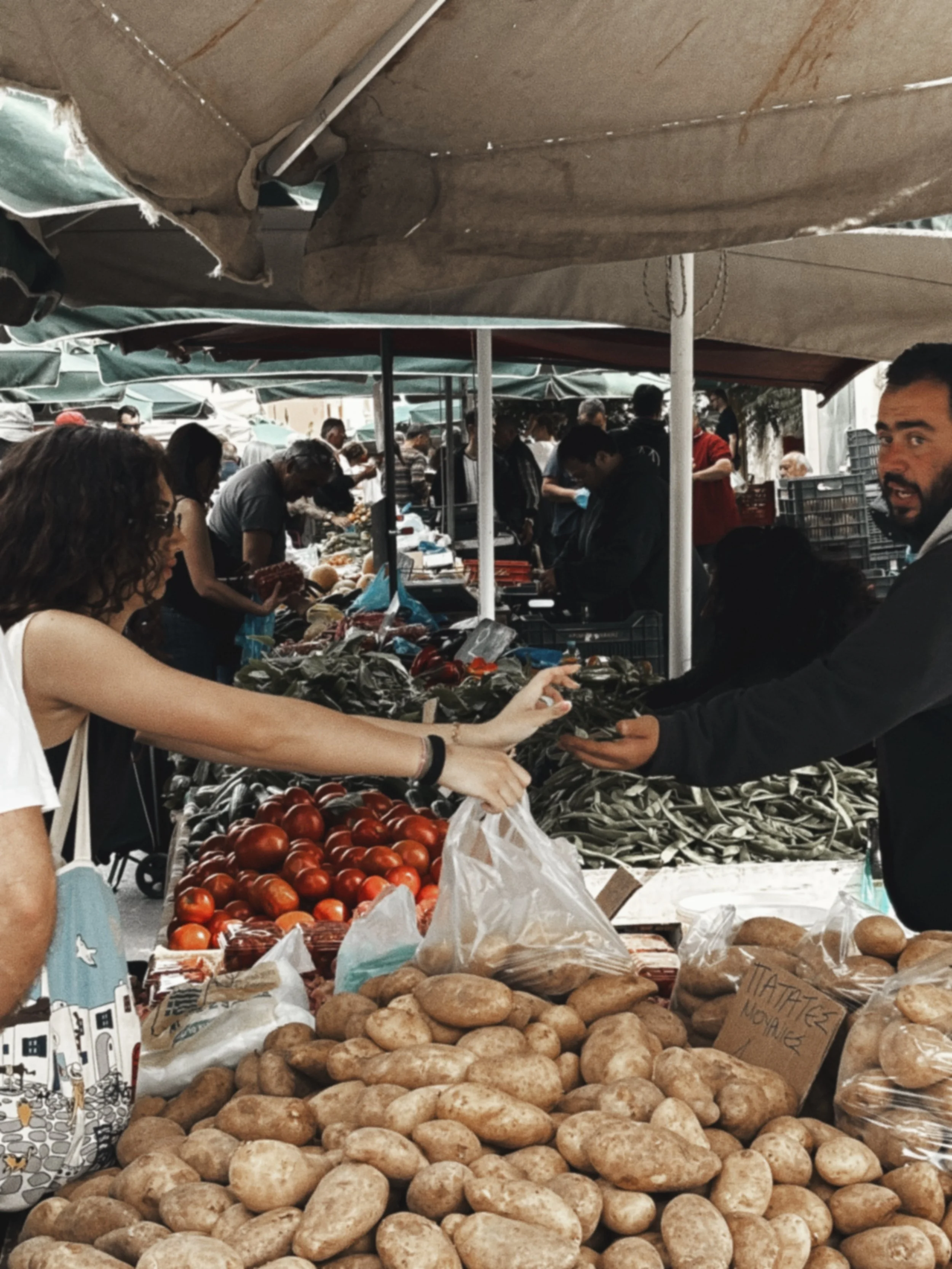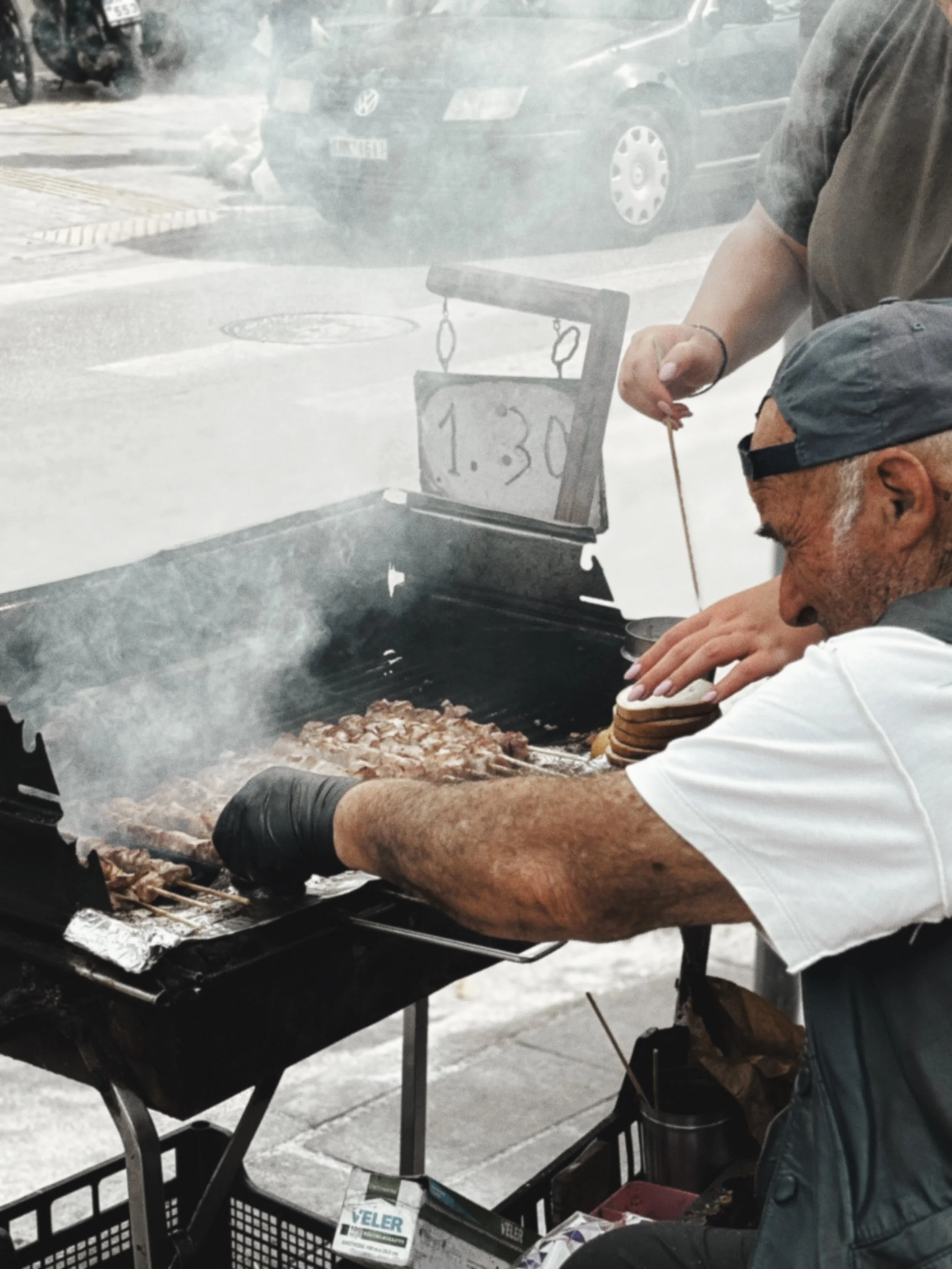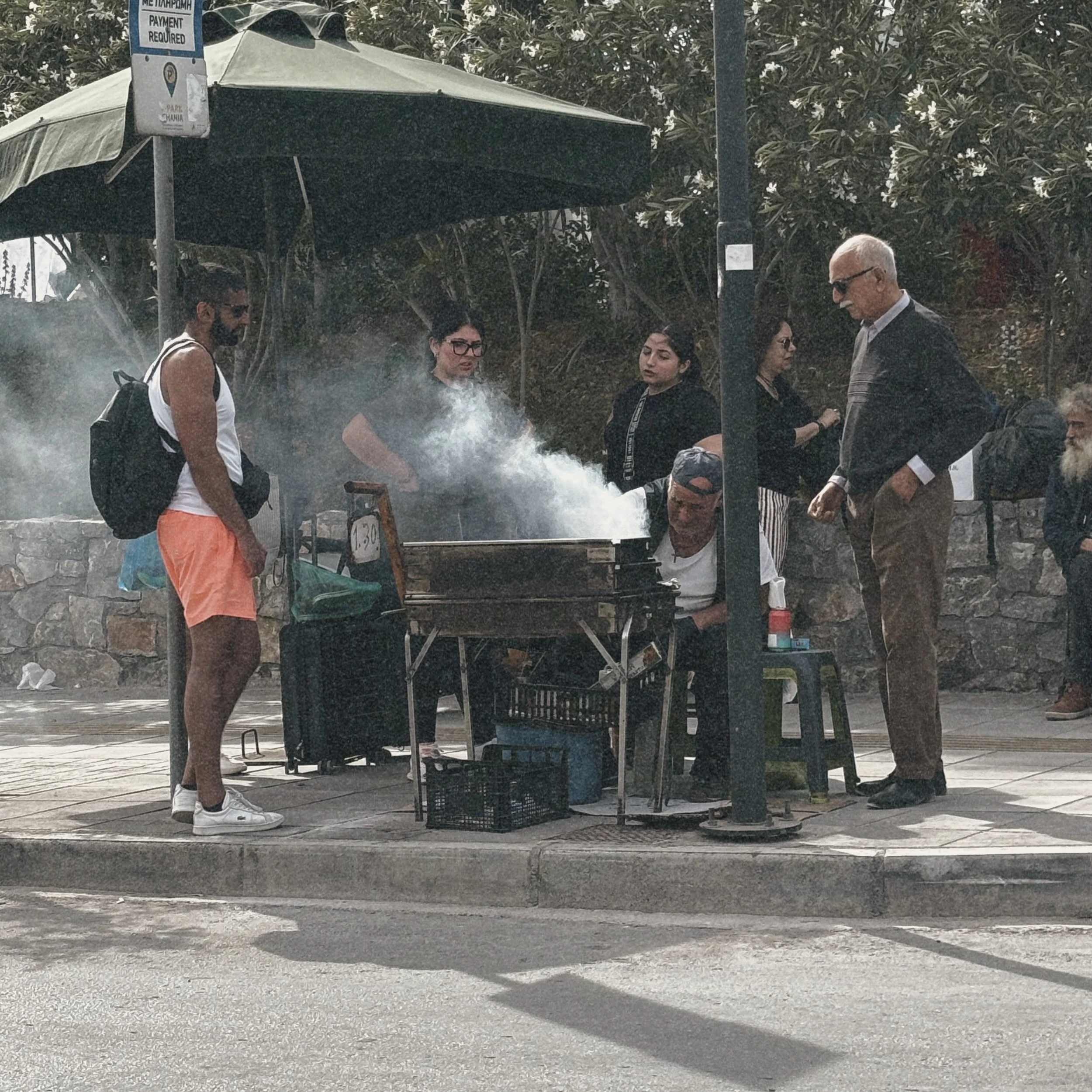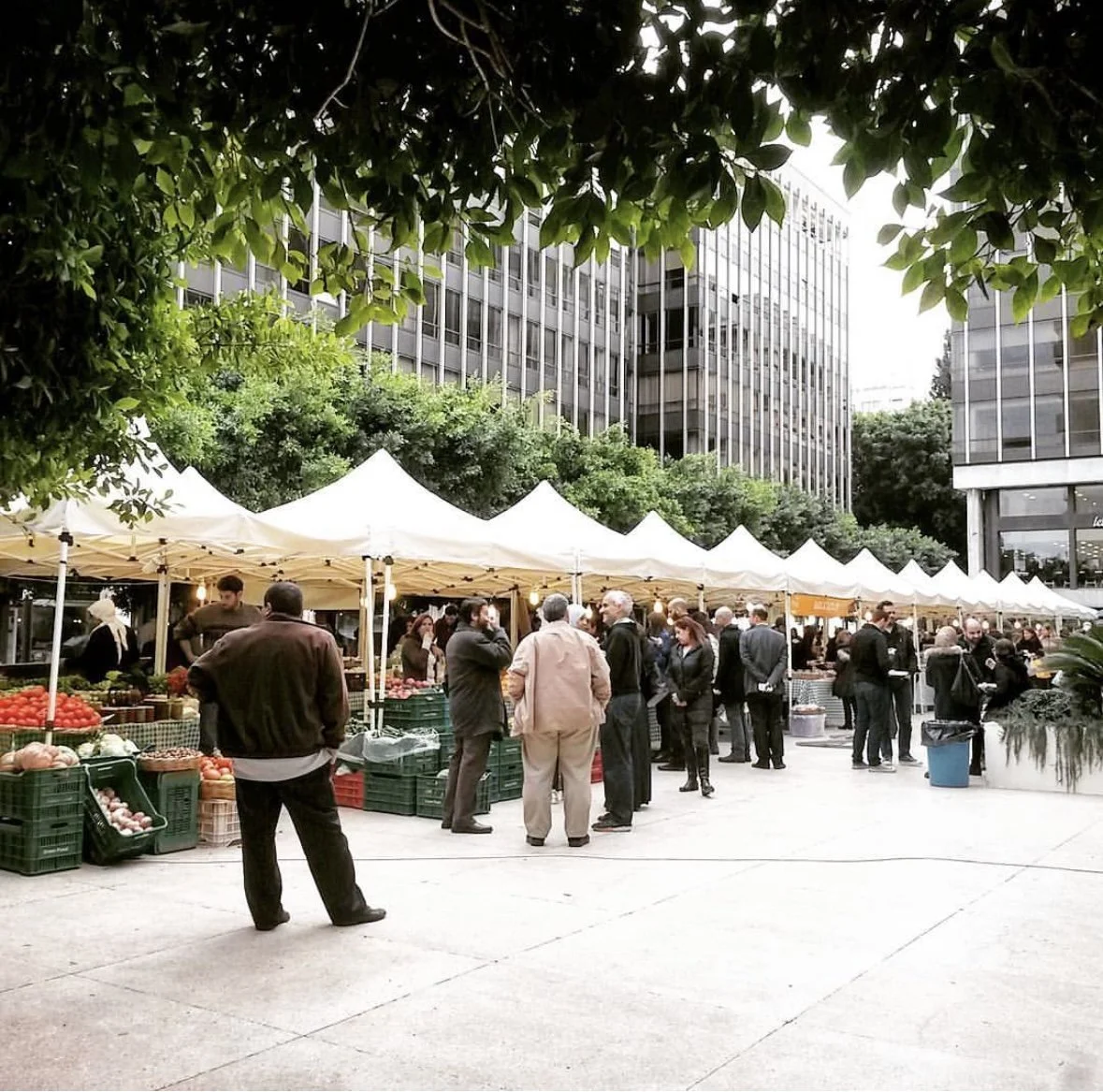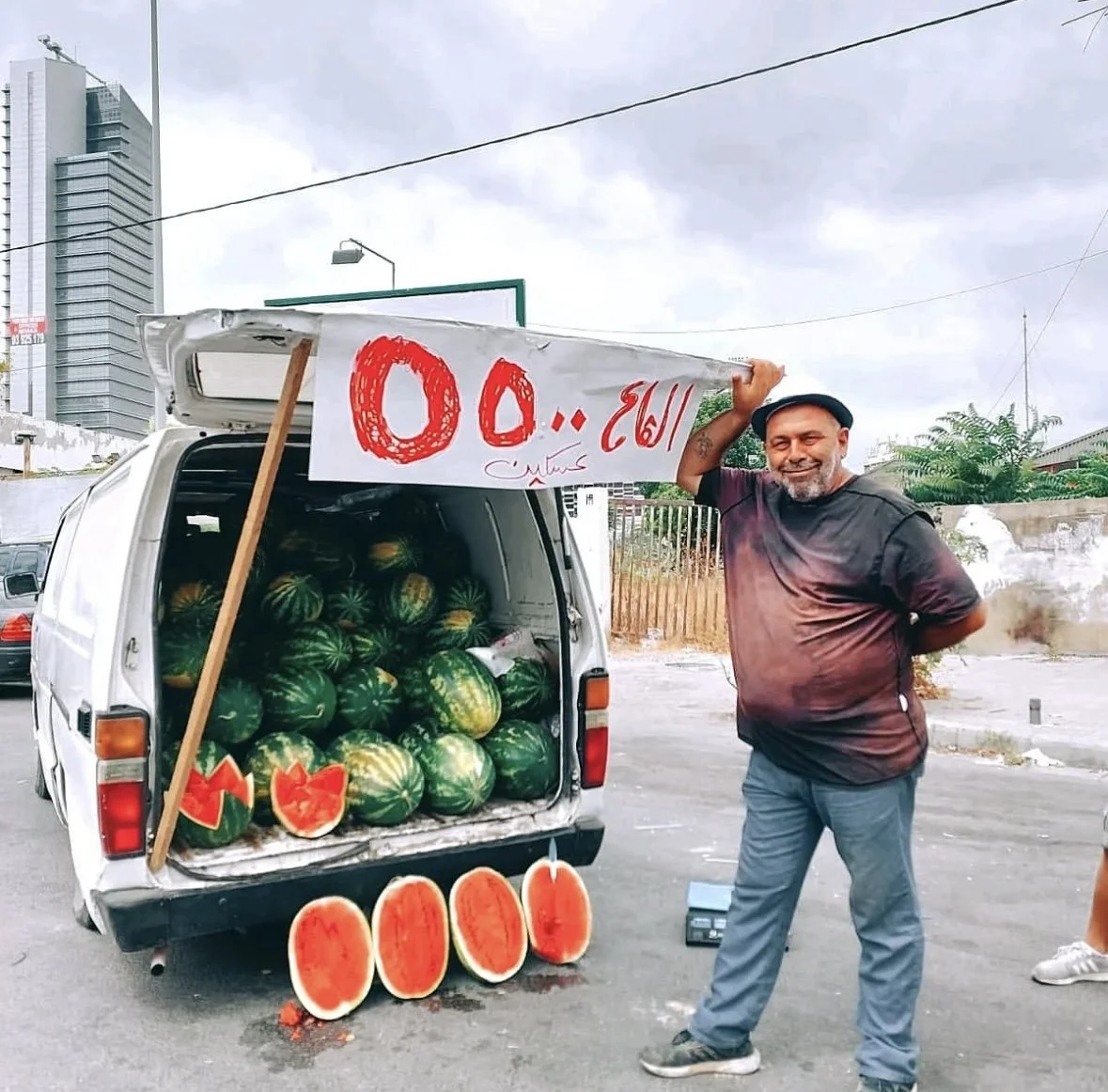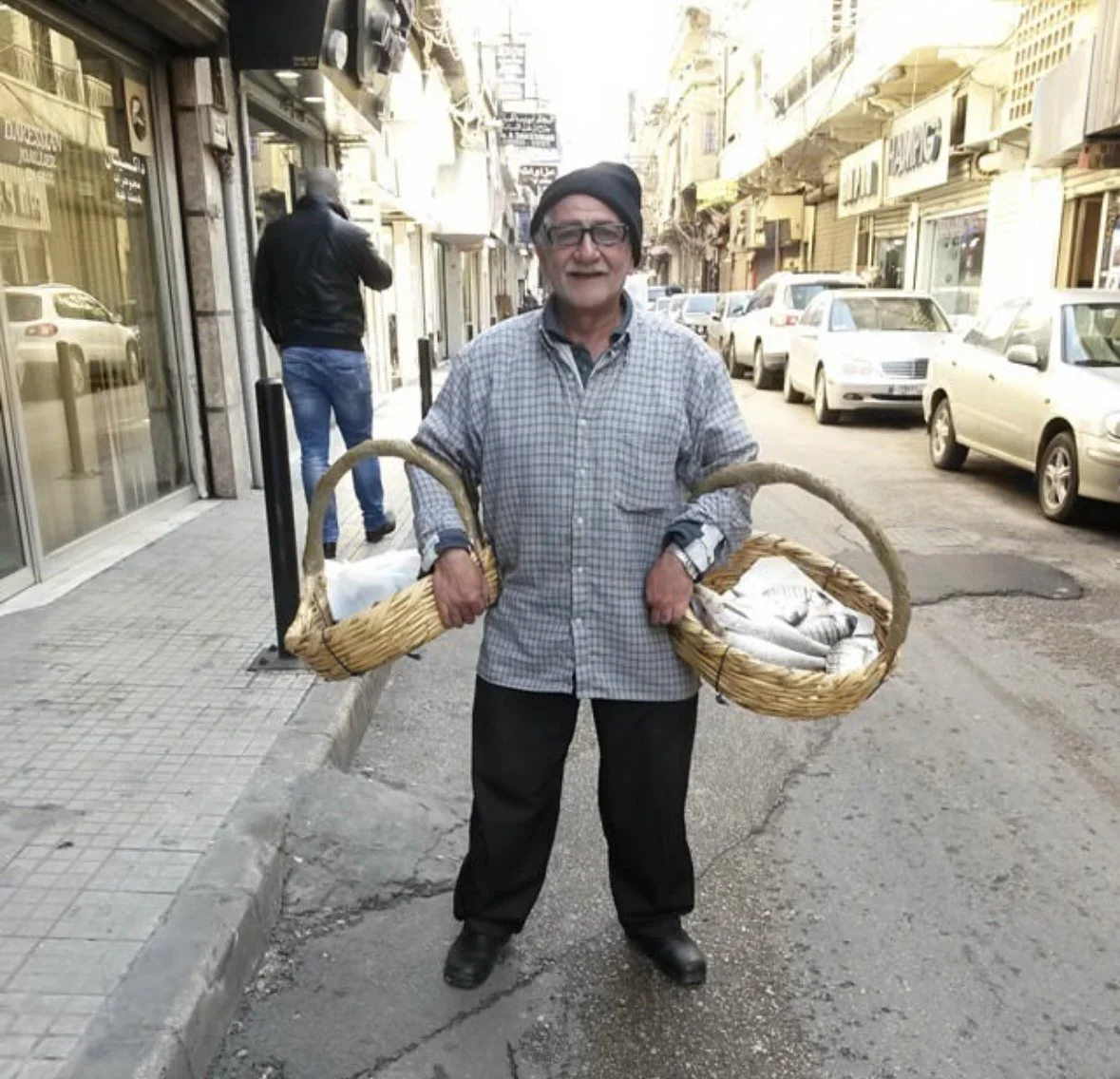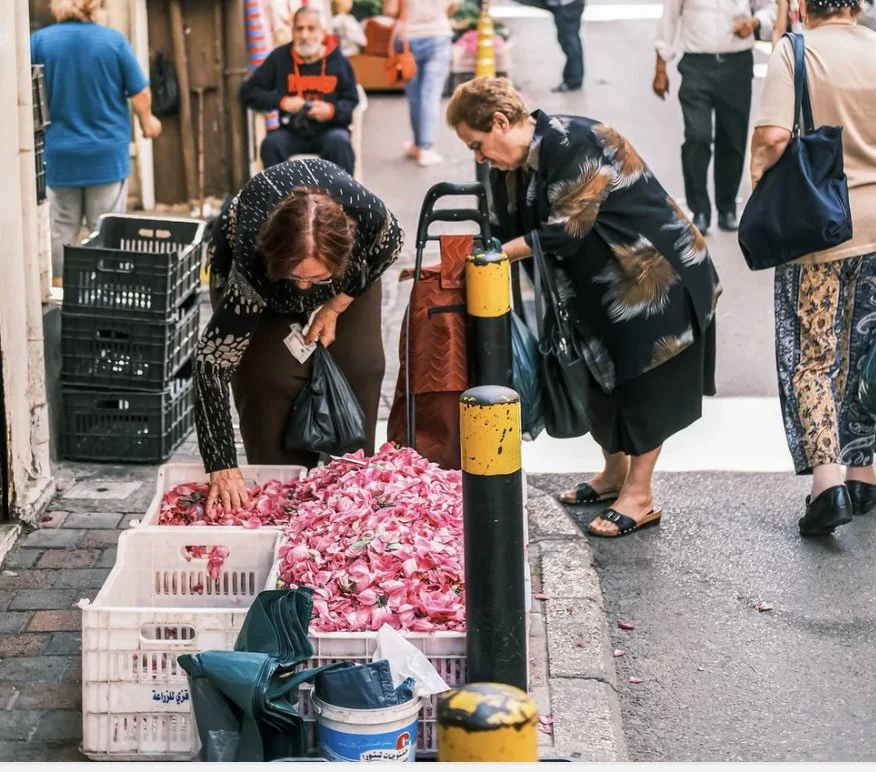Farmers Market
Each week we set up our Lebanese Street Food stall at the Fremantle Farmers Market. We arrive in the dark and bang in the tent among a huge list of other stall holders, some of which have been there since three am preparing their massive array of fruit and vegetables.
Quite often someone will comment on the weather and let you know if you should put up the awning for the rain, or use the tent pegs for the wind or have extra water for the forty degree day ahead. It’s the Sunday morning ritual of arranging all the weeks mouneh along the trestle table - vibrant orange, purple and pink pickles gleaming in the morning sun. It’s the hummus jars and toum, fragrant ma’amouls and the weeks specialty desert.
Joey fires up the pizza oven and chops the fresh produce from Margaret River Fresh for the days felafel wraps. We chat with the regulars who sneak in before the offical opening time and we get a much needed coffee from the coffee shack before service. Working here has become more than just a job, it’s a way of life.
Mis en Plus
The Fremantle Farmers market is one of the most cherished Sunday rituals in Fremantle for locals and visitors alike. This is a place that invites you walk around, sample free tasters, listen to local music, bring the kids or just be out in the weather and enjoy handmade products and local produce- the best in our state. If you are facing financial hardship, these markets are one of the only places in Fremantle that welcome all members of the community equally (on a regular basis), a free place to walk around, no purchase necessary.
Farmers markets are one of the last examples of communities gaining control over their economic lives, and stall holders are more than just business enterprises, but rather an opening to stories, histories, recipes, culture, debate, politics and community. Gone are the days of social style voting, hanging out at the tavern at uni & lingering in public spaces without a smart phone for a distraction. We’ve segregated and isolated ourselves and it creates such a huge disconnect in our society. The farmers markets offer a space for people to come and connect, talk or just feel like they can sit on the grass and watch the music.
Not only do farmers markets help us reconnect to each other but it is also the one rare wild card left in this world increasingly dominated by food globalisation and corporate greed. You can’t ask someone in the large chain supermarkets what the best in season produce is to buy that day or to what human effort it took to grow the food or where even most of the produce is sourced. Or maybe we should start asking them these questions! Farmers Markets offer a space to learn and exchange knowledge about the produce, the items of clothing made, perfumes, drinks and food on your plate.
The stalls you frequent each week become openings for story sharing and cultural exchange. I am constantly blown away by the support and gratitude we receive from our customers who are always keen to try the hummus, ask questions about the food, learn about Lebanese culture and its origins and traditions.
In turn, this has made us, the stall holders, hungry to learn more about Lebanese street food and what it has to offer. So much so that this year we travelled to Greece and Lebanon to visit farmers markets in Beirut and Chania. We went to learn more about the produce of the Mediterranean and the Levant, taste the street food, mouneh, hospitality and traditions that have been practiced for centuries.
Local Laiki in Chania
These markets in Chania (pictured) have been running since 1913, way before supermarkets. The stall holders roll down from the white mountains of Chania with their stunning produce, cheeses, honey and snails - but the vendor that captured our hearts the most was the smokey souvlaki stall. Hunched over a tiny charcoal bbq, this Cretan was cooking his meat sticks and toasting white bread on a Saturday morning by the side of the road, calling out to his daughter to bring more meat from back of his beaten up car. Real Cretan style. The flavour of the Souvlaki was amazing, mostly because the spirit was truly authentic. This scene was pure theatre as he shouted in Greek, flipped meat sticks, toasted the bread and served this one euro thirty market snack to his road side customers.
I love how these farmers markets bring together tradition with current lifestyles. In Lebanon we witnessed the same at Souk El Tayeb in Mar Mikhael with the vast array of Mouneh (preserves) on show. This market is a social enterprise that promotes the culinary traditions of the Lebanese people. Here we gained so much inspiration behind all the different types of pickles & the genuine friendliness and passion of each stall holder. They truly love what they do in keeping the Lebanese food culture and traditional practices alive.
image of Souk el Tayeb in Hamara by Karim Sakr
Image by Karim Sakr: a Beirut photographer who also sells his prints at the Souk and online
Lebanons recent economic crisis has forced food makers to create local variations of previously imported products. This is the tradition of Mouneh. Historically, through times of political unrest, war or famine, the Lebanese would preserve whatever food was available so it could last the longest period of time without spoilage. Here at this market this tradition is alive and well. You can find traditional items such as labneh, makdous, variations of pickles as well as newer experimental products like lentil cookies, apple syrups and chocolate zaatar mix. This market is a hub of culture, everybody is so passionate and engaged with the produce they are selling and products they have created. There is no pressure to consume, but instead people come to learn, share and be part of the community and Lebanese way of life.
Lebanon, with its high cost of living and economic inflation relies on markets such as these to preserve its culture and make it accessible to the whole community. Like the Fremantle Farmers Markets, people come here to talk and be with each other as much as they are there to eat and shop.
Fish monger selling his catch from baskets - Image by Karim Sakr
Image by Karim Sakr
We bundled up all this new inspiration from both farmers markets in Chania and Lebanon and took these ideas back home to carry on the traditions and spirit of the Creten Laiki and Lebanese Souks.
It’s a radical act having a market stall, it’s a way of supporting yourself and really flipping the bird at large corporations who are trying to drown out small businesses. Being part of the Fremantle community, creating our food from scratch and with heart, holding culture and family traditions close and sharing it with the wider community is a rare and special service and one we are immensely proud of at our food stall. Being held by the farmers market is special and an example of communities taking control over their lives -
“Voting with their dollars and their feet to support local artisans and local agriculture.”
Robinson and Hartenfeld
Farmers markets are so important because they help people reconnect with the environment, food, culture and most importantly with each other.

